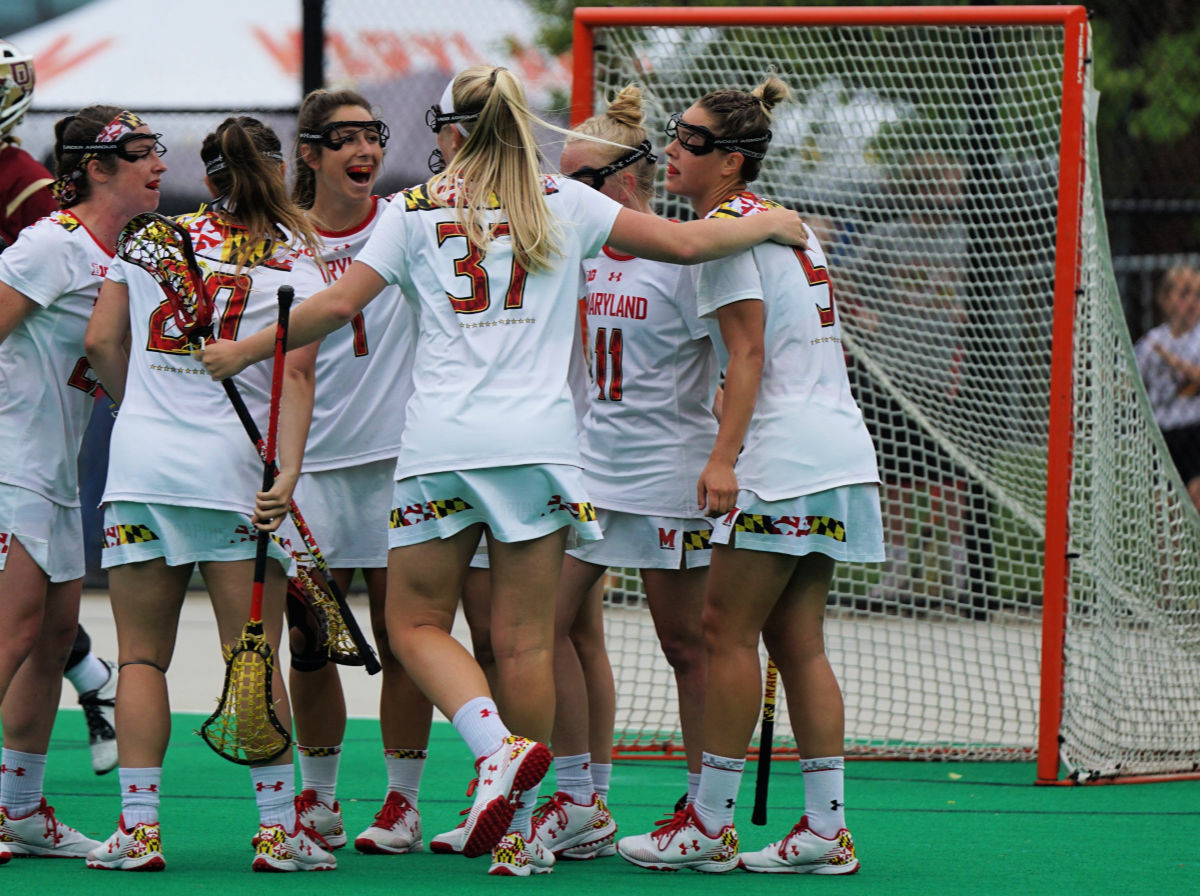Sideline Behavior

It’s getting close to the end of lacrosse season and games are getting more intense as they tend to have playoff implications. Passions are running high for everyone: players, fans, coaches, and officials. Every possession is an emotional rollercoaster. How do you get this to work for you rather than against you? Take it down a notch.
Be a Positive Role Model
As a coach you need to lead by example. Of course, you want your players to play with passion and energy. However, too much energy and passion can lead to mistakes and penalties. Players at every level take their cues from their coaches. You have a tremendous amount of influence on the behavior of your players. Whether you are a positive influence or a negative influence depends on you.
You need to set the tone for your teams’ behavior on the field and on the sideline. Be a positive role model. Stop screaming at every call you don’t agree with. You should be experienced enough to understand that referees are human and make mistakes just like everyone does — even if they do make more mistakes than you do. Explain this to your players. Ask your players if they ever dropped a pass or missed a ground ball during a game. Most will admit to making mistakes. We are all trying to do our best on the field, including the officials and the other team. Accepting the humanity of everyone gives the kids, and us, a better perspective.
Tone and Volume Are Important
Our game is exciting. Good plays should be celebrated and cheered. How you do that will be an example for your players on the field and on the sideline. Teach your players that celebrations should be team oriented. Celebrations should never be directed toward the other team or about an individual drawing attention to him/herself. These are also great opportunities to point out a ground ball, a save, or an outlet pass that lead to the thrilling behind the head goal. Remind your team to celebrate appropriately too. Jumping all over a player who just scored his fifth goal to take an 11-goal lead is not cool. Sometimes you need to act like you’ve been there before.
When the head coach is reasonable, it has a trickle-down effect on everyone from the assistant coaches, to the players, to the parents, to the officials, and even to the other team. Tone is important. Nothing amps up the emotions more than an accusatory tone. Volume is important as well. Referees respond much better to questions that are posed in a moderate tone and volume. Ask the officials for explanations in a reasonable tone and you will get much better results.
Positive Communication
Coaching is all about communication. Communicating with a player on the far side of the field involves being loud. Yelling is part of the job. However, what you yell and the tone you use is important. Keep it positive. The kids will begin to hear it the fifth or sixth time you yell it. Going negative usually takes 15 to 16 attempts. This isn’t easy. But if you want easy, you probably should find another line of work. Nobody likes getting reamed out by the coach during the game. If you have to, pull the player out for a minute and explain what you want. Players who are on the sideline want to get back in the game and will be much more willing to listen to you. I know this sounds like a terrible idea, late in the game, when it’s your best player you need to communicate with, but your results will be better than screaming across the field. As a coach, you have the ultimate motivational tool: playing time. Use it judiciously and it can make your life much easier.
Again, no one said it was easy. Keeping your emotions in check and being a positive role model for your players is hard work. But it will allow you and your team to make better decisions during the game. Better decisions lead to more wins. More wins, lead to more fun. So, chill out and have more fun.
About the Author
Kevin Meany is the head boys coach at Swax Lax Lacrosse. He was a goalie for Providence College, and when he’s not coaching for Swax Lax Lacrosse, he’s the assistant coach for the Morristown-Beard varsity and middle school lacrosse teams in Morristown, New Jersey, and a contributor to the Swax Lax team.

